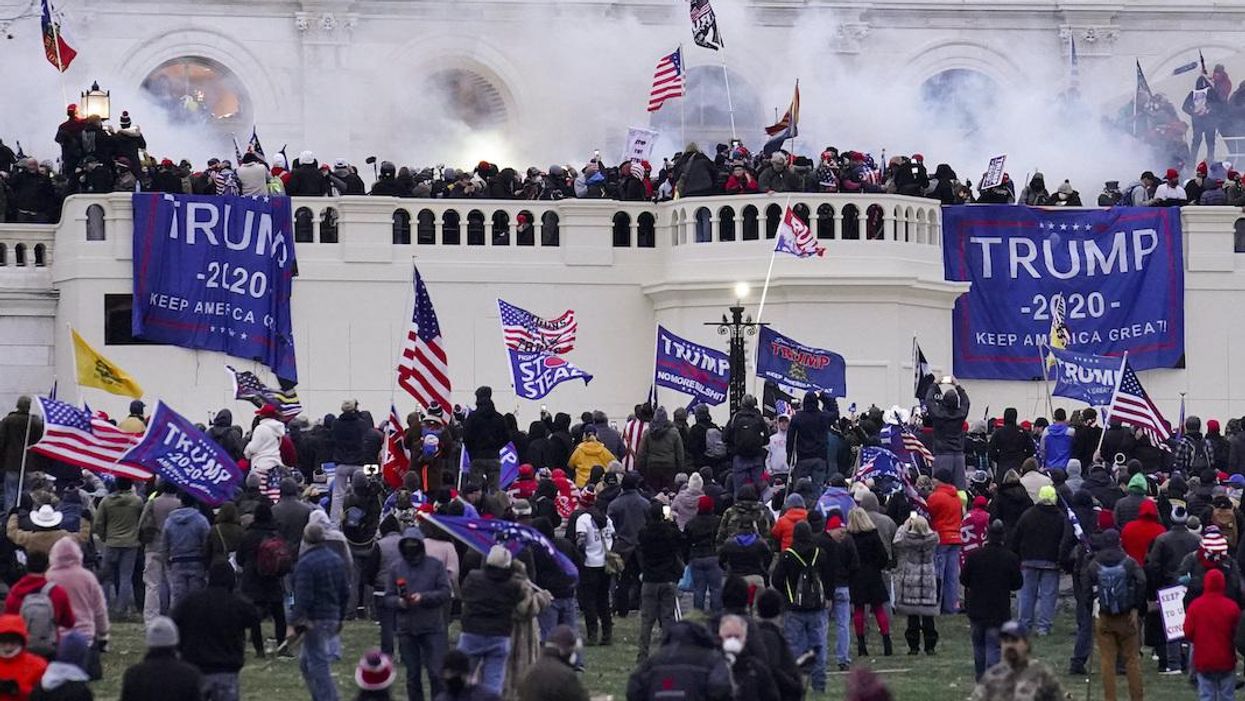Select Committee Prepping For Most Public Phase Of Probe Yet

If you liked the January 6 headlines generated by Rep. Liz Cheney of Wyoming in the final month of 2021, buckle up for more to come as Congress returns to work in 2022.
The House Select oCmmittee investigating the January 6 attack on the Capitol is revving up for a more public phase of its probe, according to the Washington Post. The effort will include a series of public hearings at the outset of 2022 as the panel assembles a preliminary report of its findings for summer and a finalized version to be released before next year's midterms. The panel is also exploring the possibility of recommending the Justice Department bring charges against Donald Trump or anyone else who had a hand in trying to overturn the rightful results of the 2020 election. At the same time, they are weighing potential legislative fixes that could help safeguard future elections.
Expect surprises. Earlier this month, Cheney managed to captivate the D.C. press corps with a series of sensational day-of-riot texts between Trump chief of staff Mark Meadows and certain unnamed GOP lawmakers, along with high-profile Fox News hosts. The committee is sure to have more previously unreleased information at the ready as it connects the dots between those who plotted to disrupt the peaceful transfer of power and the deadly insurrection that unfolded on January 6.
According to the Post, the panel has loads of data to work from after "interviewing more than 300 witnesses, announcing more than 50 subpoenas, obtaining more than 35,000 pages of records and receiving hundreds of telephone leads through the Jan. 6 tip line."
The resulting narrative promises to be the most comprehensive to date. The select committee split investigative responsibilities into five separate working groups, with some that have pursued previously unmined territory. That includes how the "Stop the Steal" rallies were funded and by whom; the propaganda campaign to seed and spread misinformation about the election; the pre-insurrection preparations undertaken within certain governmental agencies; the concerted effort by Trump and his cronies to pressure election officials, lawmakers and other officeholders to delay certification of the results; and those who played key organizing roles in rallies and events intended to disrupt the peaceful transfer of power.
“We want to tell it from start to finish over a series of weeks, where we can bring out the best witnesses in a way that makes the most sense,” a senior committee aide told the Post. “Our legacy piece and final product will be the select committee’s report.”
A second committee aide added that Team Trump did "a pretty masterful job" of manipulating millions of Americans into doing his bidding.
“How do you get that many people screwed up that deeply? And continue to screw them up? Right? And what do we do about that? So there are some big, big-picture items that go well beyond the events of [January 6] that the committee is also grappling with,” said the aide.
The committee is also trying to determine what might have unfolded following Jan. 6 if Congress had failed to reconvene and certify the election. As the first committee aide put it, what would have taken place if "we ended up in a constitutional gray zone"?
Any legislative recommendations from the panel would presumably attempt to establish a set of procedures to be followed in the absence of circumstances that fell outside of definitive constitutional text. Those recommendations would likely be aimed at updating the Electoral Count Act, the outdated 19th-century statute that established congressional procedures for finalizing the electoral votes in a post-election joint session of Congress. The panel is also revisiting how to keep a sitting president from abusing the emergency powers currently afforded to them in the event of a contested election.
But arguably, none of the panel's considerations will amount to a hill of beans unless those who plotted, planned, and inspired the violence on Jan. 6 are held accountable for the assault they unleashed on the U.S. seat of government.
“This is the next progression—to see whether or not some of the things that we have uncovered or discovered rises to the level of a criminal referral,” said Rep. Bennie Thompson of Mississippi, chair of the select committee.
Legally speaking, such a referral is not binding on the Justice Department. But if the panel succeeds in laying out a damning throughline from the plotters and planners to the attack itself, Justice Department officials will be hard-pressed to entirely ignore the committee's findings.
That's where the stepped-up public information campaign comes in.
“We’re not a law enforcement investigation," the second committee aide told the Post, "but we are finding facts, and we expect to make our findings public at the appropriate time for everyone to see.”
What's clear is that the same plotters and planners of the coup attempt have now orchestrated a legal effort to block as much information as possible from flowing to the January 6 panel. Basically, everyone involved at the highest levels of the misinformation and pressure campaign to steal the election is now refusing to cooperate with the committee, along with filing legal challenges intended to delay and ultimately thwart the committee’s efforts. That includes Meadows, Trump lackey Steve Bannon, attorney John Eastman, and four organizers of the January 6 rally.
Next year, any number of GOP lawmakers might also punctuate that list. The select committee has already sought information from Republican Reps. Jim Jordan of Ohio and Scott Perry of Pennsylvania. Both have indicated an unwillingness to cooperate—tensions that will surely escalate next year as the panel makes its case to the public. Cheney will likely be at the forefront of that messaging campaign, skewering Jordan and all her GOP colleagues who “fucking did this,” as she reportedly rebuked Jordan amid the insurrection tumult on January 6.
The bigger the GOP rift, the better.
Article reprinted with permission from Daily Kos








